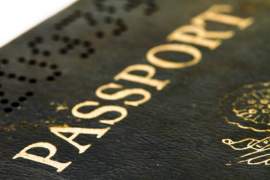
Does the U.S. Have an Immigration Process?

Must Read
Related Forms
N-400 Application for Naturalization
I-129 H1B Petition for a Nonimmigrant Worker
Form N-600K Application for Certificate of Citizenship
Form N-600 Application for Certificate of Citizenship
Form I-130 Petition for Alien Relative
Form I-129F Petition for Alien Fiance
Form DS-11 US Passport Application Form
Form DS-156 Nonimmigrant Visa Application
Form DS-160 Online Nonimmigrant Visa Electronic Application
Form DS-2019 Application for the Certificate of Eligibility for Exchange Visitor(J-1) Status
Form DS-7002A Training / Internship Placement Plan
I-485 Application to Register Permanent Residence or Adjust Status
Form I-20M-N Certificate of Eligibility for Nonimmigrant(M-1) Student
Form I-140 Petition for Alien Worker
Form G-28 Notice of Entry of Appearance an Attorney or Representative
Form I-693 Medical Examination and Vaccination Report
Form G-325 A Biographic Data Sheet
Form I-864 Affidavit of Support Under Section 213A of the Act
Form I-602 Application by Refugee for Waiver of Grounds of Excludabiltiy
View AllThe legal immigration process for entry into the U.S. comes under the authority of various agencies, including the U.S. Citizenship and Immigration Services (USCIS) and the National Visa Center.
In general, legal immigration can be enabled by the individual applicant being sponsored by a person who is already a citizen or permanent resident (Green Card holder) of the U.S, and who is connected to that individual in some demonstrable way, as a family member or a potential employer.
The legal immigration process accordingly begins with an immigration petition, Form I-130, being submitted by the prospective immigrant’s sponsor, either to the USCIS or to the nearest applicable consulate or embassy. The petition will then be forwarded to the National Visa Center, which will schedule interviews for applicants which it accepts.
If the applicant undergoes the interview successfully, he or she will then empowered, through a visa, to travel to a U.S. port of entry and considered for legal immigration.
In accordance to its definition, the immigration process is simply the moving of people into a different location. However, to immigrate in modern terms refers to the moving of people from one country to another, usually for the purpose of establishing a better quality of life. However, the immigration process is not as simple as traveling and entering another nation. Immigration laws imposed by countries will make the immigration process a more standardized and legal procedure.
To immigrate to another country, regardless of the purpose, will require that certain laws be followed and that certain procedures take place in order to lawfully enter another country. Immigration laws vary from country to country, though most will require specific documentation in order to allow those that immigrate to a country to enter under lawful terms. Typically, this will entail securing a visa and passport.
NEXT: How Can a Naturalization Lawyer Help?





















